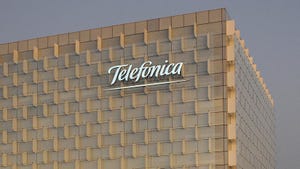South Africa’s Independent Communications Authority (ICASA) has reintroduced a controversial requirement that companies applying for spectrum must be 30 per cent owned by historically disadvantaged shareholders (HDI). With the country’s second spectrum auction planned for an as-yet unspecified time this year, players such as MTN and Vodacom could find themselves excluded from bidding for access in the 2.6GHz and 3.5GHz bands which form a key component in both telcos next-generation, LTE network strategies.
April 5, 2011

South Africa’s Independent Communications Authority (ICASA) has reintroduced a controversial requirement that companies applying for spectrum must be 30 per cent owned by historically disadvantaged shareholders (HDI).
With the country’s LTE spectrum auction planned for an as-yet unspecified time this year, players such as MTN and Vodacom could find themselves excluded from bidding for access in the 2.6GHz and 3.5GHz bands which form a key component in both telcos’ next-generation, LTE network strategies.
Having introduced the 30 per cent requirement in its initial draft regulations, ICASA then withdrew the requirement in its last draft, released in October last year, following significant pressure from the industry. With few of the bigger players in the South African market capable of satisfying the HDI requirement, many see the regulation as a critical opportunity to extend spectrum ownership to smaller market players. The new regulations are final.
The initial announcement of the HDI requirement saw a flurry of activity in the market as larger places rushed to conclude deals with several “empowerment” partners. MTN kicked off a black economic empowerment share scheme worth in excess of £70m and a range of other projects designed to get it through the compliance doors ahead of the first invitation to apply for spectrum. Business Connexion followed suit with the sale of a 30 per cent stake of its holdings to several empowerment partners.
With many legal experts claiming that the requirements can be challenged, some commentators are pondering the wisdom of these deals, particularly if the sole reason for conducting them was what’s known in South Africa as “window dressing” or “fronting” in order to comply with ownership regulations.
ICASA’s spectrum auction plans have been dogged by delays and controversies, with dates being pushed back for a variety of reasons, including the inability to find a partner to assist with managing the process and a variety of industry-led challenges regarding fine detail. If, as expected, legal challenges are mounted to this final version of the regulations, it seems unlikely that the auction will take place as planned this year.
You May Also Like





.png?width=300&auto=webp&quality=80&disable=upscale)

.png?width=300&auto=webp&quality=80&disable=upscale)
_1.jpg?width=300&auto=webp&quality=80&disable=upscale)



.png?width=800&auto=webp&quality=80&disable=upscale)